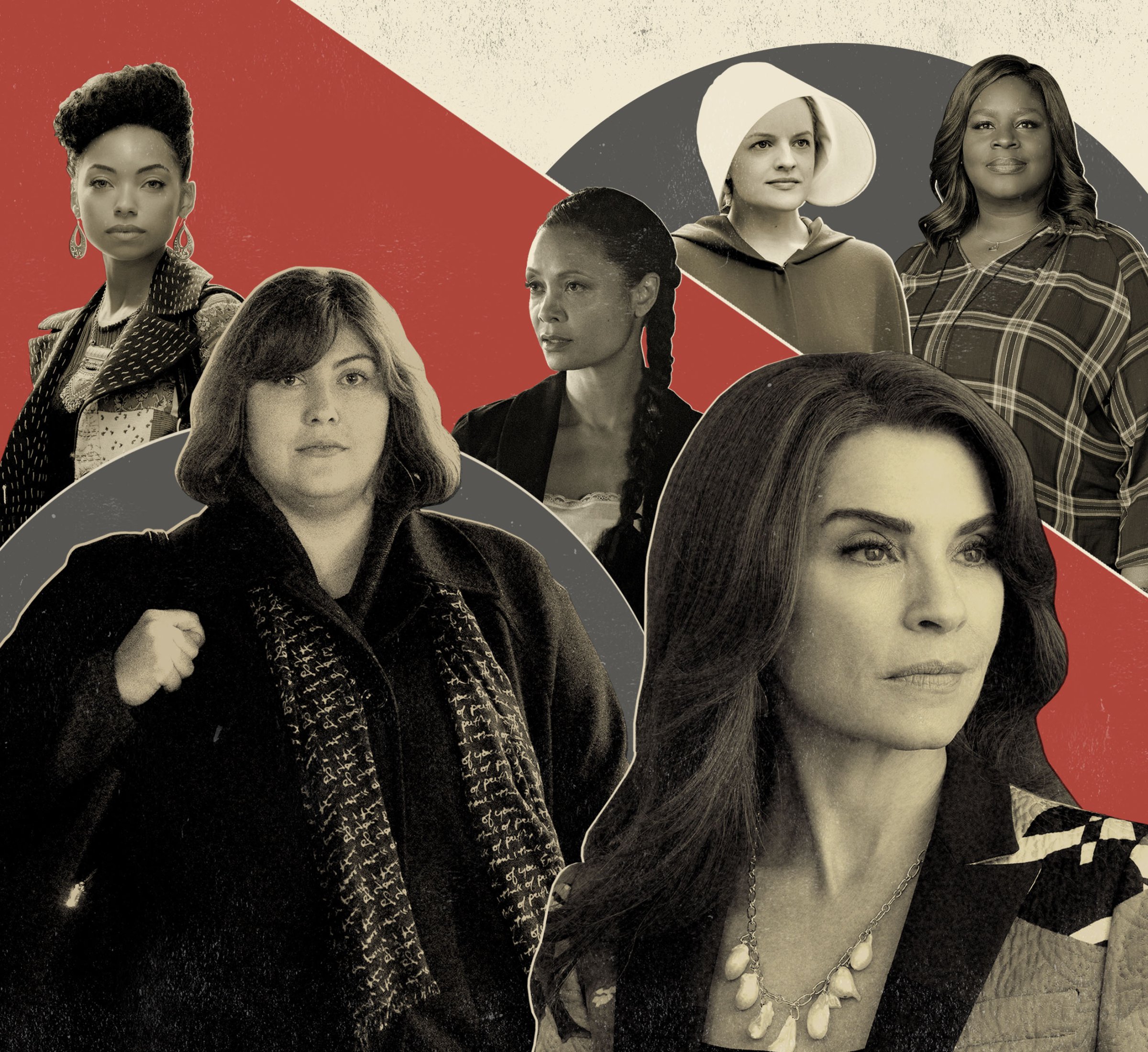
AMC’s new series Dietland begins with a montage of self-harm: One woman sticks her finger down her throat. Another braces for a laser trained on her cheek. A third carefully slices open her breast with a razor. In a voice-over, they read their emails to a high-powered editor of a fictional women’s magazine pleading for advice: “Dear Kitty, I’m ready to kill myself–or maybe somebody else.”
But Kitty (Julianna Margulies) doesn’t answer their letters. Rather, a ghostwriter named Plum (Joy Nash), herself plagued by self-loathing and saving up for a dangerous weight-loss surgery, writes back. Plum’s increasingly political emails attract the attention of a terrorist group called Jennifer, which kills rapists and dumps their bodies off buildings and bridges. This radical group wants to fight not just the men who hurt women physically, but also the institutions that scar women psychologically. Jennifer taps Plum to infiltrate the toxic world of fashion magazines.
Dietland felt like fantasy when the best-selling book, written by Sarai Walker, was published in 2015. But it won’t feel nearly as farfetched when the show premieres on June 4. The series takes the #MeToo movement to its most violent extreme. To viewers, women donning witches’ masks and forcing rapists to read confessions on camera may feel empowering–if more than a little scary.
Just a few years ago, this show never would have been made. But righteous female rage on television, which had been simmering, has now reached a boiling point. On Netflix’s Dear White People, college-radio DJ Sam (Logan Browning) airs her grievances about white male privilege. On NBC’s Good Girls, three suburban moms tie up a would-be rapist and leave him in a tree house. On HBO’s Westworld, female androids gain sentience and aim their guns at the humans who abused them. On Hulu’s dystopian Handmaid’s Tale, June (Elisabeth Moss) burns the conservative red robes that identified her as a sex slave. Dietland is only the latest, and most outrageous, revenge fantasy to storm the small screen.
For years the Tony Sopranos and Walter Whites of TV expressed their rage in egotistical outbursts: “I’m the one who knocks.” But these women, having learned to suffer in silence, approach revenge more stoically. Westworld‘s Thandie Newton maintains a serene stare even as the blood of the men she murders spatters on her face. On The Handmaid’s Tale, Elisabeth Moss gives a rebellious smirk under her bonnet.
Historically, these women flew solo. The women of Desperate Housewives bickered with one another, while the female lawyers of The Good Wife feuded in order to protect their cheating husbands. But now they’re beginning to unite. On Dear White People, frenemies Sam and Coco (Antoinette Robertson) join together to make change on campus when one of their male counterparts fails to move the needle. When Good Girls‘ Ruby (Retta) accidentally shoots a bad guy, her friends rush to her aid.
Even Dietland villain Kitty–who runs a beauty empire built on women’s insecurities and pays for a photographer’s legal fees when he’s accused of rape–finds commonality in her resentment. She must stay thin and young-looking, while her male colleagues can grow fat and bald in peace. When guerrilla group Jennifer kills that predatory photographer, Kitty can’t help but laugh.
But as satisfying as watching this moment play out in media might feel for women who have been subjugated and abused, the consequences can be jarring. Male superheroes casually destroy entire cities and never bother to examine the damage. But when women, conditioned by society to play nice and care for others, are the perpetrators of violence–no matter how justified–it’s still shocking. In time, female antiheroes may become the norm, but for now Dietland and other shows of its ilk feel audacious. It’s enough to make you wonder what will come next–onscreen and off.
More Must-Reads From TIME
- The 100 Most Influential People of 2024
- The Revolution of Yulia Navalnaya
- 6 Compliments That Land Every Time
- What's the Deal With the Bitcoin Halving?
- If You're Dating Right Now , You're Brave: Column
- The AI That Could Heal a Divided Internet
- Fallout Is a Brilliant Model for the Future of Video Game Adaptations
- Want Weekly Recs on What to Watch, Read, and More? Sign Up for Worth Your Time
Write to Eliana Dockterman at eliana.dockterman@time.com